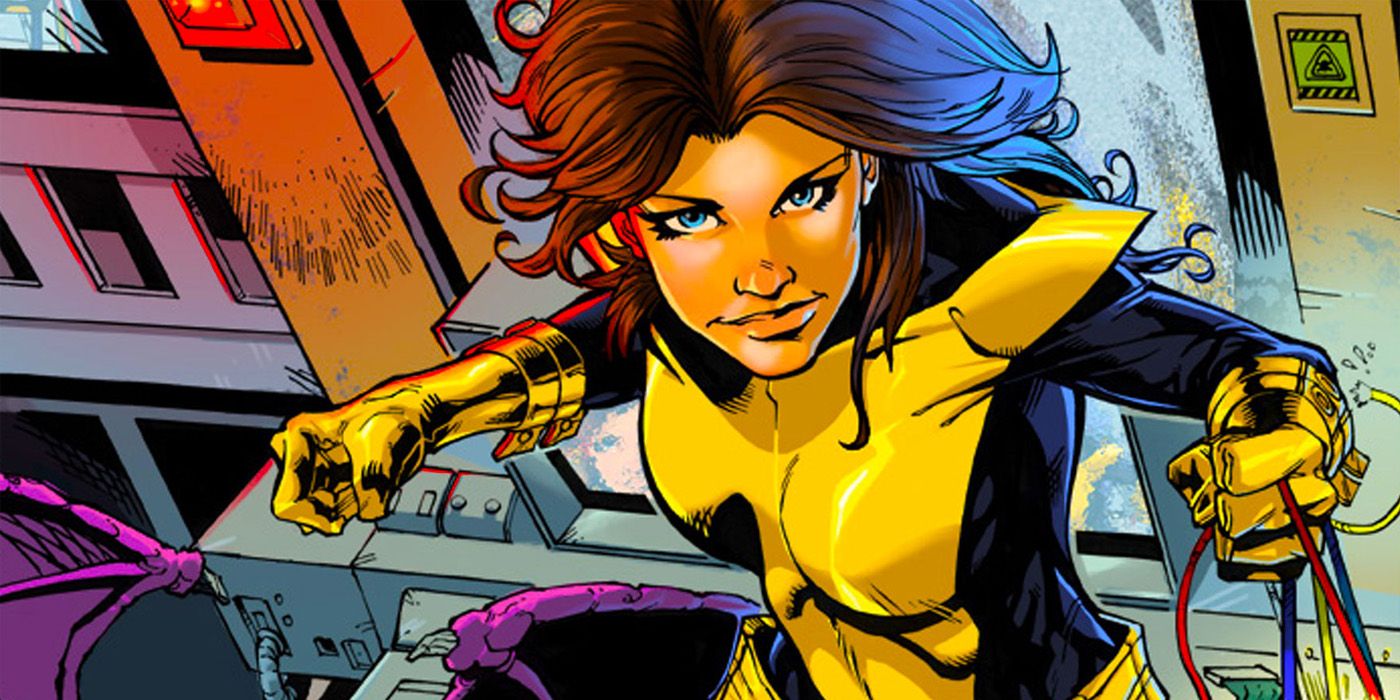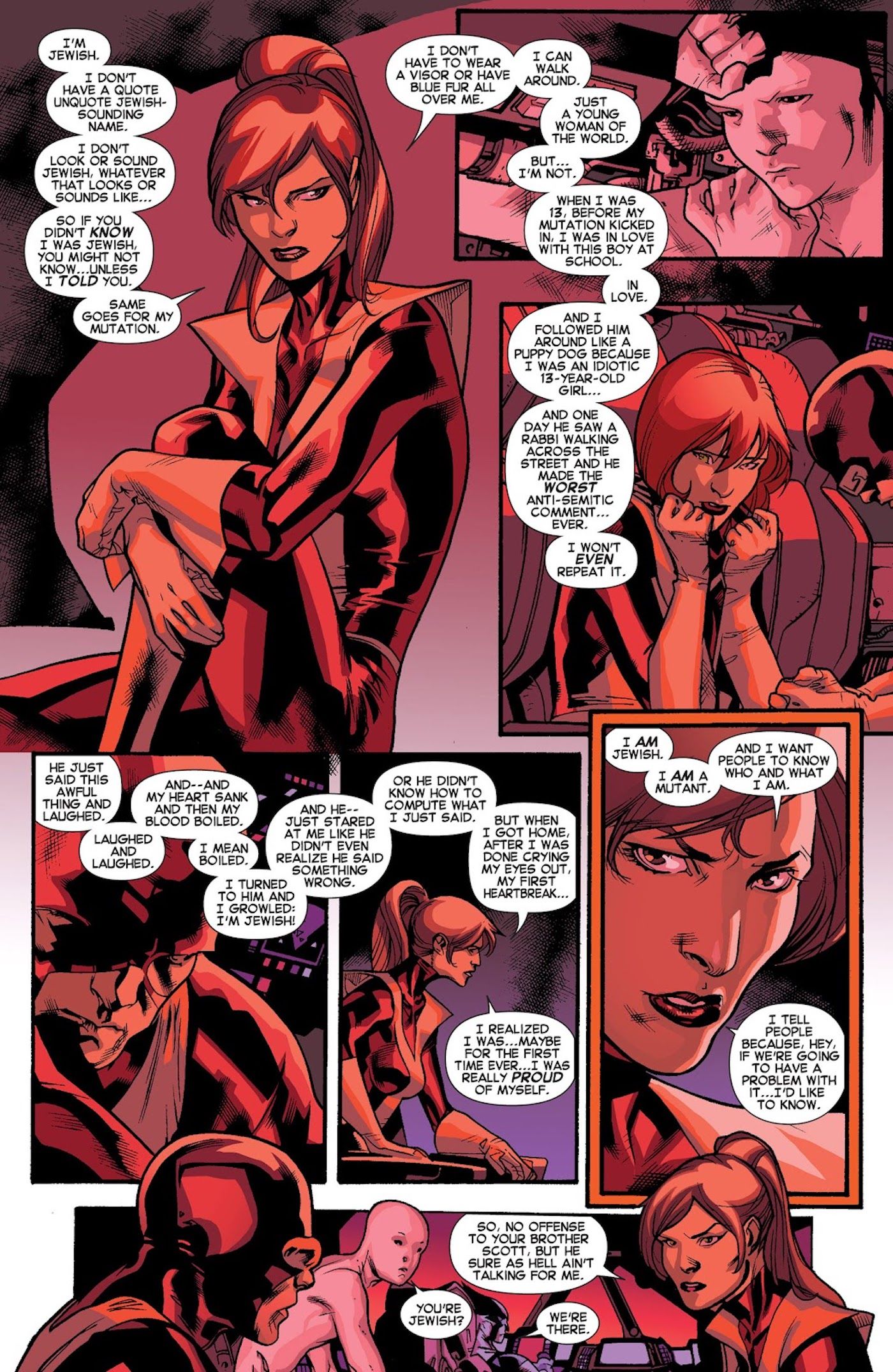Jewish representation is unfortunately rare in the superhero genre, but an X-Men comic features a scene that delves into Jewish identity and anti-Jewish bigotry that continues to permeate American society. Kitty Pryde, a fan-favorite mutant superhero, is one of Marvel’s most prominent Jewish characters, whose easily-hidden superpowers are comparable to her identity as a white-passing Ashkenazi woman. Kitty’s monologue in a 2013 issue of All-New X-Men provides the Marvel Comics universe with a tasteful example of Jewish representation that the MCU is, unfortunately, sorely lacking.
The superhero comic genre itself is inexorably tied to American Jewish culture, as the mainstream publishing industry was uninviting to all but white, Christian male creatives for a time. In the 1930s, the comic book industry was one of the few that was friendly to Jewish creatives, resulting in famous writers and artists like Jack Kirby, Stan Lee, Jerry Siegel, Joe Shuster, Bill Finger, Bob Kane, and many others creating the modern superhero genre. Jewish culture may be subtly and unsubtly built into superhero fiction, but there are, unfortunately, few overtly Jewish characters in the genre, with some of Marvel’s most prominent examples being Kitty Pryde, Ben Grimm, Marc Spector, and the villainous (yet complex) Magneto.
While most Marvel adaptations struggle to even say the word “Jewish,” let alone give Jewish people a decent level of representation, All-New X-Men #13 by Brian Michael Bendis and Stuart Immonen has Kitty Pryde deliver a moving monologue regarding her minority statuses as both a Jewish woman and a mutant. Kitty acknowledges that her ethnic background makes her indistinguishable from a gentile woman to many and that her mutant powers are only perceivable when she moves through solid matter. She also shares an anecdote that highlights the prominence of antisemitism, even to this day, so although Kitty can easily hide her Jewish and mutant identities, she chooses to inform those around her of both, deservedly being proud of them. This sort of positive Jewish representation is rare in mainstream fiction, so Kitty Pryde’s way of meaningfully tying real-world Jewish identity to Marvel’s fictional mutants was powerful.
At the start of her monologue, Kitty notes that she doesn’t “look or sound Jewish, whatever that looks or sounds like,” which addresses the fact that Jewish identity is based on ethnicity, religion, or both, and while ethnic Jewish people are indigenous to the Levant, Jewish people have a large variety of appearances. Kitty Pryde’s X-Men anecdote, which details her first heartbreak upon discovering that her crush is an antisemite, also highlights the prevalence and nonchalance of modern antisemitism. Anti-Jewish prejudice existed long before the Holocaust and unfortunately remains strong to this day, even in some of the most progressive communities in the United States, which have seen an increase in violent antisemitic hate crimes in recent years.
Marvel’s adaptations, particularly the MCU, have an unfortunately problematic history of whitewashing Jewish characters and lacking Jewish voices when telling their stories, with Avengers: Age of Ultron and Moon Knight being some of the most shameful examples of this erasure. Brian Michael Bendis, who is Jewish, tastefully highlights Kitty Pryde’s Jewish identity in All-New X-Men, and while her story addresses antisemitism, it ends on an uplifting note, with Kitty proudly embracing her Jewish identity just as she does her mutant identity. Jewish identity is seldom represented (and even more rarely depicted in a positive light) in genre fiction, so Kitty Pryde’s monologue in X-Men is both a breath of fresh air and precisely the sort of Jewish representation that the MCU must include in future properties.


